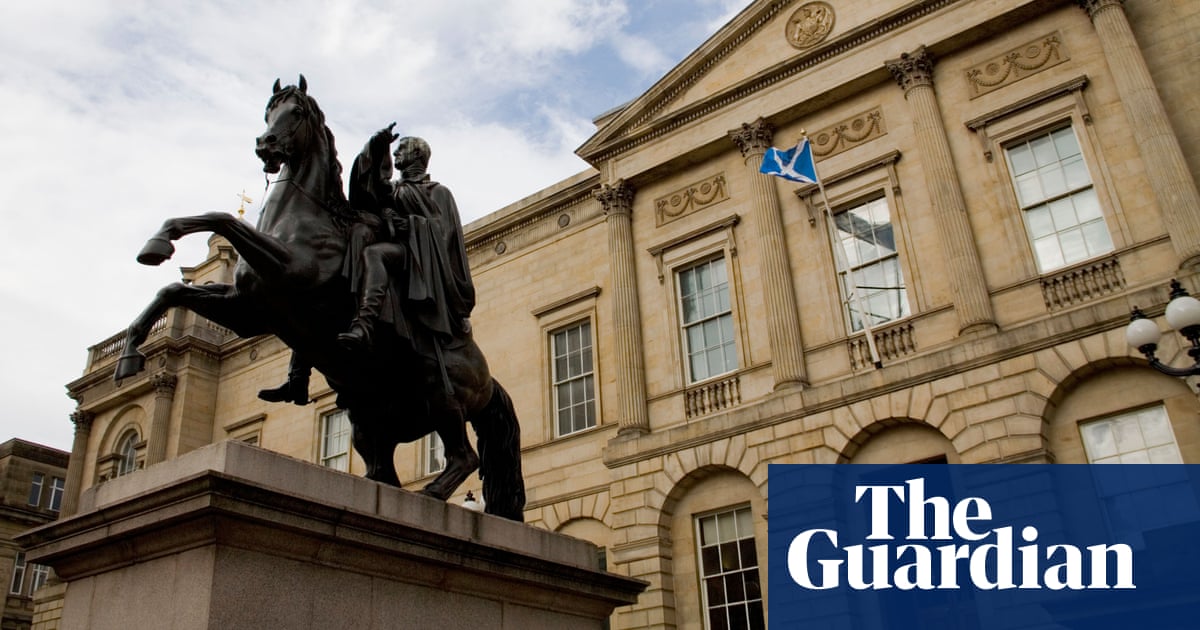
A Scottish government memo obtained by the Guardian reveals that “it is almost certain” draft laws have been secretly changed to secure the Queen’s approval.
Under an arcane mechanism known as Queen’s consent, the monarch is routinely given advance sight of proposed laws that could affect her personal property and public powers. Unlike the better-known procedure of royal assent, a formality that marks the moment when a bill becomes law, Queen’s consent must be sought before the relevant legislation can be approved by parliament.
A Guardian investigation last year revealed the Queen’s consent procedure had been used by the monarch in recent decades to privately lobby for changes to proposed UK legislation. In Scotland, where the procedure is known as crown consent, research by the Guardian identified at least 67 instances in which Scottish bills were vetted by the Queen.
The Queen’s representatives have previously refused to say how many times she requested alterations to legislation as part of this procedure. Buckingham Palace and the government insist the process is “purely formal” and maintain the Queen does not use the procedure to change the nature of draft bills.
But the newly obtained internal memo, prepared in response to a parliamentary question on the use of crown consent, contains the first explicit admission that the procedure may be used to change legislation to address the Queen’s concerns.
It also confirms that the Queen’s lawyers may discuss the substance of bills with the Scottish government and admits “it is almost certain some bills were changed before introduction to address concerns about crown consent”, meaning even MSPs in Holyrood would not be aware that legislation had been amended for this purpose.
‘A back channel to sneak amendments into legislation’
The admissions follow a series of reports in the Guardian revealing how the Queen used her privileged access to influence ministers to change UK legislation to benefit her private interests or reflect her opinions between the late 1960s and 2021.
The procedure, which operates in the UK, Scottish and Welsh parliaments, dictates that proposed laws cannot be implemented without the monarch’s approval when a bill might affect her public powers or private interests such as her privately owned estates at Balmoral and Sandringham. But critics have said the secretive procedure allows the unelected monarch to secure changes in laws to protect her assets without the public knowing about her intervention.
Last year, the Queen’s lawyers secretly lobbied Scottish ministers to change a draft law to exempt her private land from a major initiative to cut carbon emissions. The exemption meant the Queen was the only private landowner in Scotland who was not required to facilitate the construction of pipelines to heat buildings using renewable energy.
In July 2021, the Guardian published evidence showing the Queen had vetted at least 67 Scottish acts, including legislation dealing with planning laws, property taxation, and protections from tenants, after the Scottish Liberal Democrats uncovered correspondence detailing the use of crown consent in Scotland.
A few weeks later, Willie Rennie, then the leader of the Scottish Lib Dems, asked the Scottish government in a parliamentary question for a list of acts that had been amended as a result of exchanges with the Queen’s representatives. He also asked for details of any concerns raised by the Queen about draft Scottish legislation and for publication of the Scottish government’s responses.
The Scottish government refused to answer the question. But the Guardian has obtained the confidential briefing note prepared by civil servants for George Adam, the Scottish National party minister who replied to Rennie, which reveals how the royal household can use the consent procedure to influence legislation.
The official memo states: “It is also almost certain that some bills were changed before introduction in order to address concerns about crown consent, however these will not have been ‘amended’ in parliamentary terms and so would not be included in such a list.”
The memo confirms government lawyers contacted the Queen’s Scottish solicitor when they thought her consent would be needed “to discuss the implications of the relevant provision”. “There may also be policy discussions with representatives of the Queen,” the memo admits.
The memo further states that Nicola Sturgeon’s government deemed it too expensive to collate and publish a list of bills that had been modified. The Scottish government has also refused to release any of the Queen’s lawyers’ letters, arguing they must remain secret to protect her constitutional and legal privileges. As a result, there can be no outside scrutiny of the changes made to secure the Queen’s approval, and which bills have been affected.
Alex Cole-Hamilton, the current leader of the Scottish Lib Dems, said he would be writing to Holyrood’s presiding officer, Alison Johnston, and Sturgeon requesting an urgent statement on the memo’s disclosures.
“These documents suggest that there has been meddling in the process even before government legislation was first shown to parliament,” he said.
“It appears as if, with the willing compliance of Scottish ministers, the crown has maintained a back channel to sneak amendments into legislation in such a way as to leave no way for the public or their parliamentary representatives to ever know that changes had been requested or made.
“This is an astonishing overturning of the widely held principle that the monarch does not legislate for her own benefit.”
The Scottish government said it was legally obliged to apply crown consent under the legislation that set Holyrood up, and said MSPs could ask about that process when it was used. But it said secrecy about the content and outcome of its discussions with the Queen’s representatives was justified.
“While the Scottish government welcomes transparency in relation to this process, it is important that the government protects the necessary private space ministers and officials require to explore issues and develop policy,” it said.
Since the start of her reign in 1952, the Queen and Prince Charles have vetted more than 1,000 laws enacted by the Westminster parliament under the Queen’s consent mechanism.
Buckingham Palace declined to comment on the contents of the Scottish government memo. Previously a spokesperson has said: “The royal household can be consulted on bills in order to ensure the technical accuracy and consistency of the application of the bill to the crown, a complex legal principle governed by statute and common law. This process does not change the nature of any such bill.”












